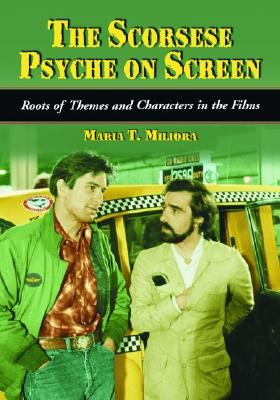
- We will send in 10–14 business days.
- Author: Maria T Miliora
- Publisher: McFarland & Company
- ISBN-10: 0786417633
- ISBN-13: 9780786417636
- Format: 17.8 x 25.4 x 1.2 cm, softcover
- Language: English
- SAVE -10% with code: EXTRA
Reviews
Description
This study examines the life and work of acclaimed film director Martin Scorsese, showing that his films reflect his experiences growing up in a Sicilian-American-Catholic family in the tough neighborhood of New York's Little Italy. The study links the personal Scorsese, his roots, and his ethical and religious attitudes. The work examines many films from Boxcar Bertha (1972) to Bringing out the Dead (1999), with special attention given to Gangs of New York (2002) as a vehicle for Scorsese's return to his roots. The Last Temptation of Christ (1988) is analyzed as a template for the Scorsese opus. The study begins with a biography of Scorsese, and then describes his films from 1963 to 2002, providing plot summaries, themes, and characters. The body of the work analyzes films in terms of male sexuality, narcissism, violence, and the place of women in the director's personal and cinematic world. In addition to showing how the themes of Scorsese's films derive from his roots, the study offers psychological analyses of his focal characters. It provides a psychological basis for understanding the dialogue and actions of the characters in the context of their respective film stories. The study shows that Scorsese's films express the values that define his worldview, which include his attitudes about masculinity, aggression, and violence.
EXTRA 10 % discount with code: EXTRA
The promotion ends in 20d.06:22:48
The discount code is valid when purchasing from 10 €. Discounts do not stack.
- Author: Maria T Miliora
- Publisher: McFarland & Company
- ISBN-10: 0786417633
- ISBN-13: 9780786417636
- Format: 17.8 x 25.4 x 1.2 cm, softcover
- Language: English English
This study examines the life and work of acclaimed film director Martin Scorsese, showing that his films reflect his experiences growing up in a Sicilian-American-Catholic family in the tough neighborhood of New York's Little Italy. The study links the personal Scorsese, his roots, and his ethical and religious attitudes. The work examines many films from Boxcar Bertha (1972) to Bringing out the Dead (1999), with special attention given to Gangs of New York (2002) as a vehicle for Scorsese's return to his roots. The Last Temptation of Christ (1988) is analyzed as a template for the Scorsese opus. The study begins with a biography of Scorsese, and then describes his films from 1963 to 2002, providing plot summaries, themes, and characters. The body of the work analyzes films in terms of male sexuality, narcissism, violence, and the place of women in the director's personal and cinematic world. In addition to showing how the themes of Scorsese's films derive from his roots, the study offers psychological analyses of his focal characters. It provides a psychological basis for understanding the dialogue and actions of the characters in the context of their respective film stories. The study shows that Scorsese's films express the values that define his worldview, which include his attitudes about masculinity, aggression, and violence.


Reviews